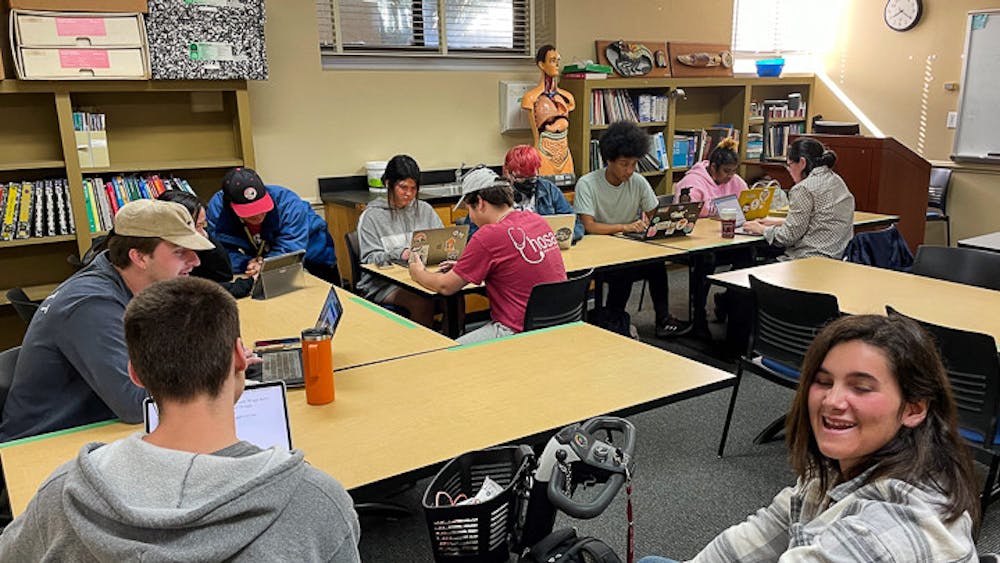Walking across USC's campus can be a relaxing experience full of historical landmarks, pleasant plant life and friendly faces. But this experience is not universal. Students with disabilities have to manage their way into dorms and administrative buildings that do not properly accommodate their needs.
To draw attention to this problem the Honors College and CarolinaLIFE, a non-degree, residential certificate program for students with intellectual and developmental disabilities, created Disability in Action (DIA) during the fall 2022 semester. DIA involves students from both organizations working towards spreading awareness of inaccessibility issues and ableism across USC's campus.
“If you don’t advocate for your disability, then staff members can’t help you,” Andro Keck, a third-year CarolinaLIFE student in DIA, said.

The students in DIA meet twice a week to discuss how they can educate people on campus. One of the ways the group does this is by using the organization's Instagram account @gamecock_dia where they post examples of disability inequity at USC.
At a classroom discussion panel hosted by DIA at Wardlaw College on Oct. 6, the class talked about some of the more noticeable physical inaccessibility issues on campus like the inconsistency of braille labeling on classroom signs in buildings like Gambrell or Swearingen and residential dormitories along the Horseshoe lacking elevators for students with wheelchairs like Preston or Thornwell.
During the discussion, they shared how buildings with elevators sometimes close too quickly and students in wheelchairs can get stuck in between the doors.
Inaccessibility is not a new issue for USC, according to alumni Kimberly Tissot, president and CEO of a disability lead non-profit organization called Able South Carolina. USC as whole needs to be mindful of "the accommodation needs for students who may have invisible disabilities,” that are non-physical and can be easily overlooked, Tissot said.
USC has to take into account disability rights laws like the Rehabilitation Act and the American Disabilities Act, both of which Tissot said USC is mandated to follow. The Rehabilitation Act of 1973 prohibits discrimination based on disability in any program or activity operated by recipients of federal funds. The Americans with Disabilities Act (ADA) of 1990 prohibits discrimination against individuals with disabilities in all areas of public life.
DIA is unique as a program due to it being a built-in course that fulfills the Honors student core requirement “beyond the classroom.” Honors College students need at least three credit hours of honors educational experience outside the traditional classroom setting, according to Max Strickland, a third-year Honors student in DIA.
“I’ve learned a lot about different support needs that people use because I’ve gotten the experience to interact with CarolinaLIFE students … that’s given me a unique perspective on like 'hey, this is what disability looks like for some people,'” Strickland said.
The DIA program plans to pitch its findings to campus-wide decision and policymakers on Dec. 1 to promote making USC’s campus more accessible to people with disabilities.
“The ADA just celebrated 32 years and the Rehabilitation Act was passed in 1973. So (USC has) had a lot of time to get their act together with making sure that students with disabilities are being served appropriately, and so there's just no more excuses,” Tissot said.
Current members of DIA want to make sure the movement doesn’t halt after Dec. 1.
“We’re going to try and use our influence to make it a more long-term movement,” Strickland said.

